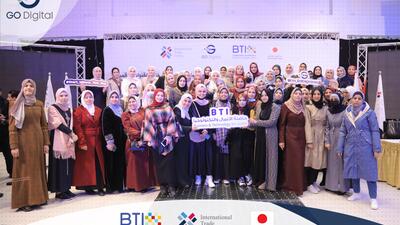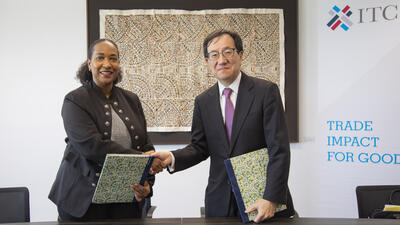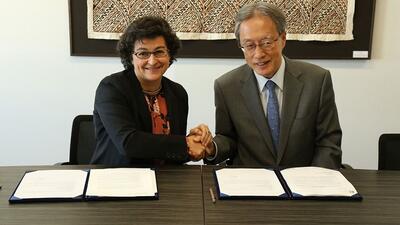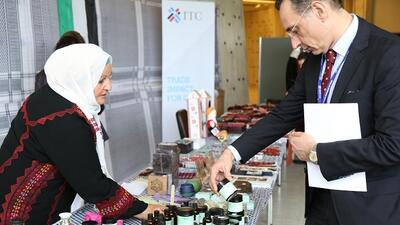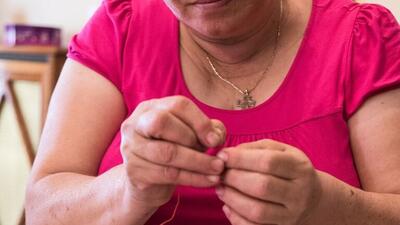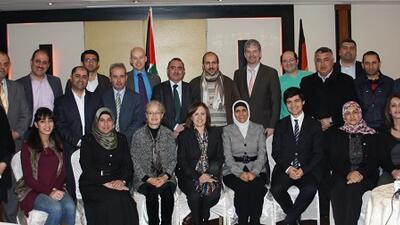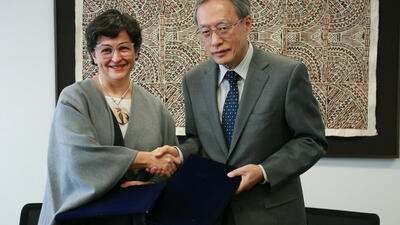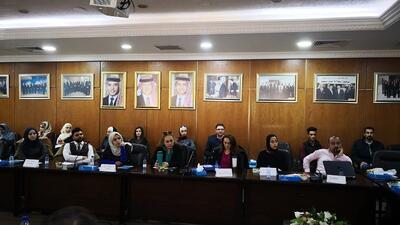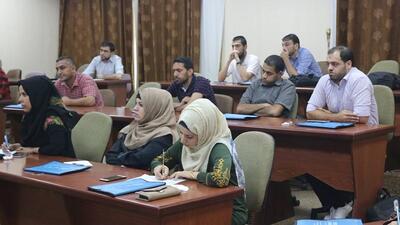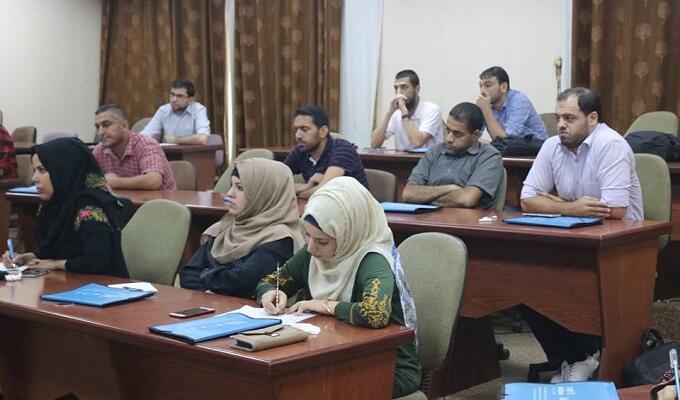
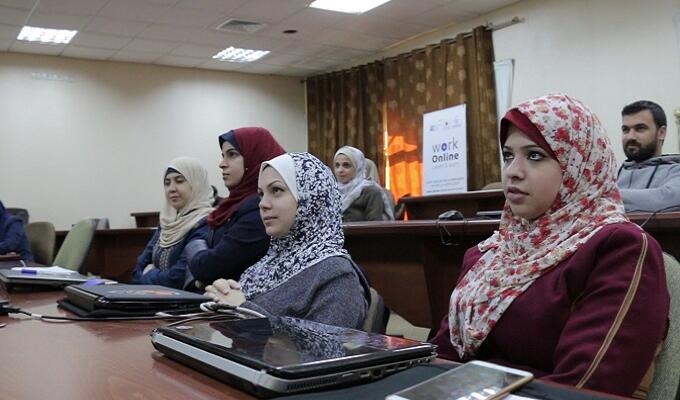
Gaza youth find business success with new digital skills (en)
Palestinian youth and refugees in the Gaza Strip secure sales of more than $40,000 using digital skills they gained through a training organized by the International Trade Centre and the Business and Technology Incubator.
The training course on web development, graphic design and digital marketing – funded by the Government of Japan – provided 83 youth and refugees with skills to connect with clients, find jobs and enter new markets. The four-month course wrapped up in February 2019.
Take Hanan Abu Zaid, who studied chemistry and worked as an events coordinator in the United Arab Emirates before returning to Gaza to work for a non-governmental organization, and Niveen Wadi, who studied biology and was a math teacher before taking the training. The two young women met during the course and eventually set up a digital marketing agency together.
‘We decided to have something bigger instead of working individually,’ Hanan said.
Since creating Will Benefit, the two entrepreneurs have secured contracts worth thousands of dollars. Even before founding the agency, they had won contracts as a team. Their first was with Jordan’s Al-Jawarneh training centre. The second was an annual contract worth $500 a month with a Saudi client.
‘This was our first official contract as a company that we earned with the help and guidance of the digital marketing training,’ said Hanan, 30. ‘And with this signature, we launched our company and Facebook page.’
They continue to build up a steady clientele. Niveen recently signed an annual contract as digital marketing manager with Tashbeak that is worth about $300 a month, and Hanan won a similar contract with Bassma Imprint that carries the same value. Niveen, 29, says she aims to make Will Benefit the biggest digital marketing company in Gaza – and in the State of Palestine.
This success story is one of several.
‘Around eight of the digital marketing trainees secured contracts with a duration of six months to one year. Some were with local companies and others were regional,’ said Hazem Habib, who has been monitoring results of the project in Gaza.
Overcoming the ‘screen barrier’
Artist Baraa Alawoor, who earned $2,250 in one month, calls ITC’s graphic design training ‘a life-changing experience that has enabled me to add value to this life’.
‘I have always wanted to work in the art and design industry, because it felt like the right direction for me to take,’ she said. ‘Graphic design is one of the skills I need most for displaying my artistic identity and improving my artwork, but the screen has always been a barrier between me and achieving that. In this training, I was able to make the most important achievement on the personal level and to overcome the screen barrier. Now, I am an artist and a graphic designer.’
Today, Baraa shares her artwork professionally through social media. She has joined freelance platforms that have helped her attract clients from around the world, numerous jobs and an ‘excellent income in a short period’.
‘Making new friends is, for me, the most important part of this experience,’ the 27-year-old said. ‘This enabled me to learn and share experiences with different personalities and mindsets. This is one of the valuable things that last forever in life.’
Valuing strength in numbers
While Baraa is going it alone, Mona Ferwana and four other trainees started a company to capitalize on their diverse skills and experience.
Mona, 32, had observed the difficulty some trainees faced in securing jobs via freelance platforms or networking over social media, despite substantial experience. She proposed that they create a freelance agency for which she would hunt for jobs through her own extensive network, and distribute those jobs among the five graphic designers based on their relevant experience.
Their company, Cookies, was born. The five-person team does typical graphic design work such as logos and banners. But Cookies also offers services including motion graphics and interior design, as a couple of team members used to be architects.
Cookies’ first job, secured over freelancer.com, was worth $500. The five designers completed four jobs over a one-month period that brought in $700, and are now working on eight jobs worth more than $2,000.




